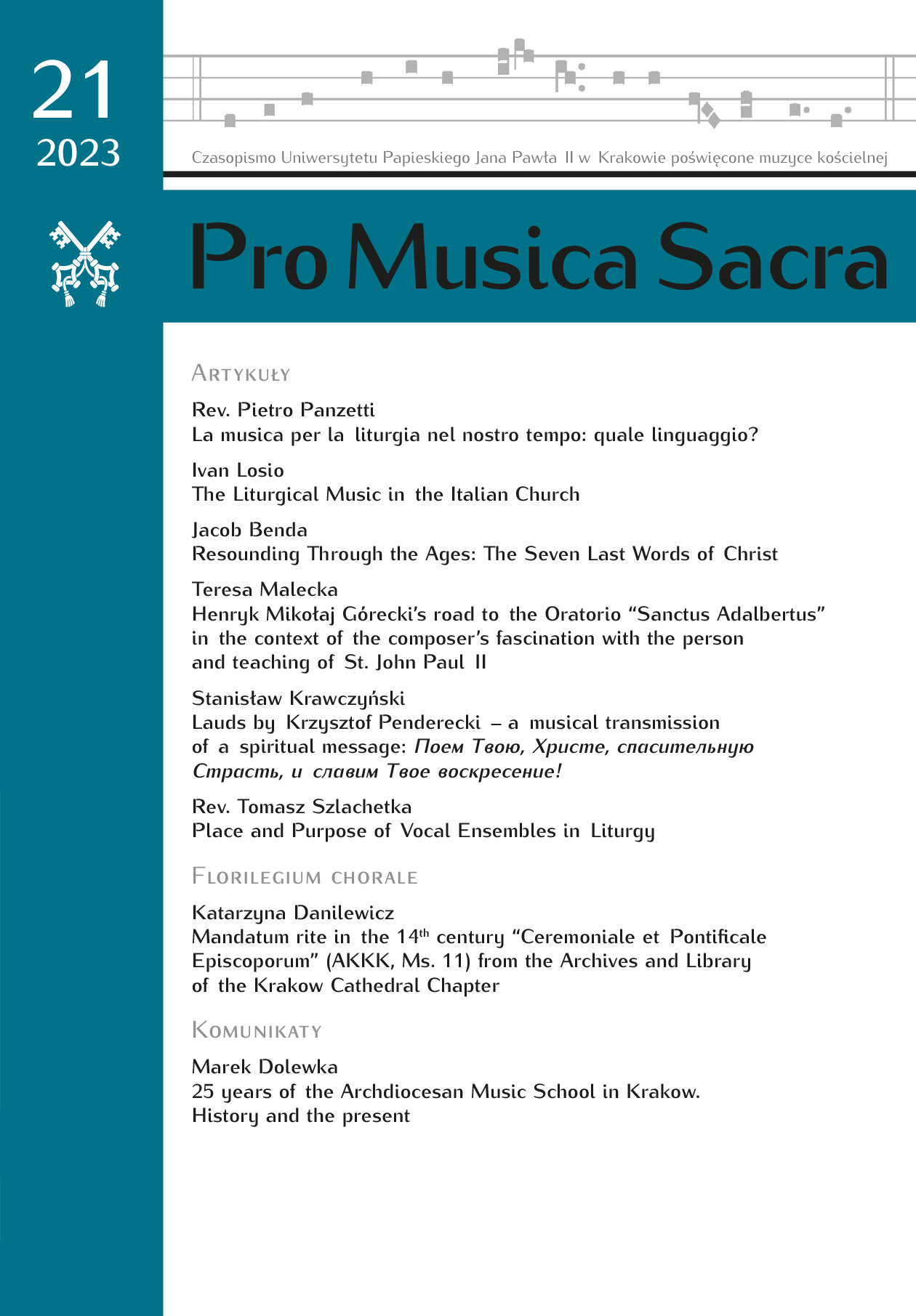Resounding Through the Ages: The Seven Last Words of Christ
DOI:
https://doi.org/10.15633/pms.2103Keywords:
organ music, liturgical music, seven last words of ChristAbstract
The life, death, and resurrection of Jesus Christ has served as the source for innumerable musical creations spanning the centuries, including a colorful array of compositions inspired by The Seven Last Words of Christ. This musico-theological analysis is an attempt to describe how Part I of Pamela Decker’s epic work for solo organ, The Seven Last Words and Triumph of Christ, artfully communicates the power, depth, and beauty of Christ’s timeless words by way of pitch, rhythm, texture, registration, and use of pre-existing melody.
References
Bonaventure Saint, Bonneval A., The Seven Last Words of Christ, transl. by R. Nixon OSB, TAN Books, North Carolina, Gastonia 2023.
Bonneval A., Tractatus de septem verbis Domini in cruce tractatus pius iuxta & eruditus, Apud Martinum Caesarem, Antuerpiae 1532.
Decker P., The Seven Last Words and Triumph of Christ for Organ, Part 1: The Seven Last Words, Wayne Leupold Editions, Colfax, North Carolina 2018.
The New American Bible. Revised Edition, World Catholic Press, New Jersey, Totowa 1987.
Downloads
Published
Issue
Section
License

This work is licensed under a Creative Commons Attribution 4.0 International License.
Authors who publish with this journal agree to the following terms:
- Authors retain the copyright and full publishing rights without restrictions, and grant the journal right of first publication with the work simultaneously licensed under a Creative Commons Attribution 4.0 International License that allows others to share the work with an acknowledgement of the work's authorship and initial publication in this journal.
- Authors are able to enter into separate, additional contractual arrangements for the non-exclusive distribution of the journal's published version of the work (e.g., post it to an institutional repository or publish it in a book), with an acknowledgement of its initial publication in this journal.
- Authors are permitted and encouraged to post their work online (e.g., in institutional repositories or on their website) prior to and during the submission process, as it can lead to productive exchanges, as well as earlier and greater citation of published work (See The Effect of Open Access).

